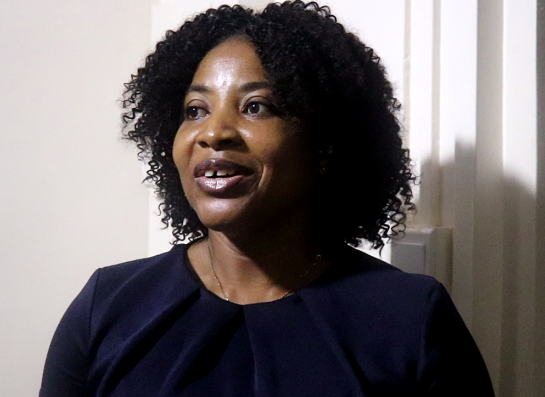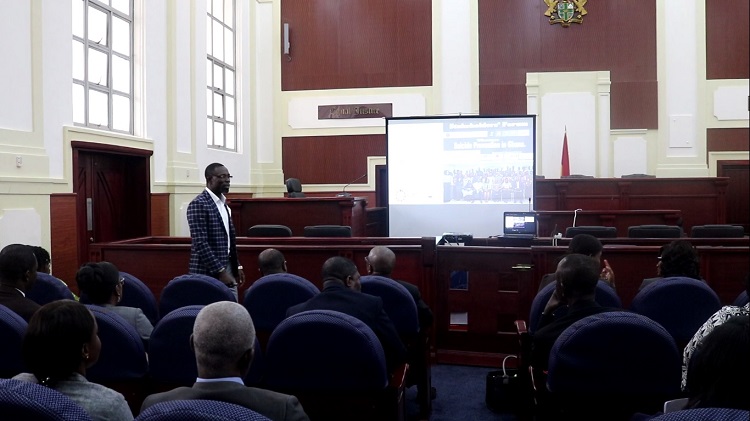
Judges trained on need to decriminalize attempted suicide
Mental Health Advocacy GH, has initiated moves aimed at ensuring that, attempted suicide was decriminalized, with a training workshop for judges.
Advertisement
According to Mental Health Advocacy GH, many attempted suicide cases were mental health related, and therefore people should not be punished for that.
Statistics available indicates that adolescents were most vulnerable when it comes to suicide.
As part of the processes to ensure suicide was decriminalized, the Authority last week undertook a training workshop for members of the judiciary in Accra.
The training workshop was to help equip the judges on how to deal with attempted suicide cases when they come before them.

Training
The training was a collaboration between Mental Health Advocacy GH, the Mental Health Authority, the Centre for Suicide and Violence Research at the Department of Psychology, University of Ghana and the Ghana Psychological Association.
Section 57 Clause 2 of the 1960 Criminal Code of Ghana makes attempted suicide a criminal offence, but that according to the Mental Health Authority (MHA) was wrong.
Rather, the MHA thinks that there should be other ways of discouraging people from committing suicide, than making it a criminal offence.
The training workshop was designed to broaden the judge's knowledge on mental health issues and how they present themselves. The enactment of the Mental Health Act, 2012 (Act 846) and the increased spate of suicides calls for a better appreciation of mental health issues among individuals in various professions as well as the general public.
The judges were taken through forms of mental health including behaviours they have to look out for when accused persons are arraigned in court.
Dr Joseph Osafo, a clinical psychologist, told Graphic Online in an interview that attempted suicide was a psycho social issue.
“We need to let them [judges] understand what the current situations are, the reality on the ground, let them know the incidences in Ghana, and based on that," advocate for attempted suicide to be expunged as a criminal code offence.
He added that the risk factors were psycho-social and not as psychiatric as perceived by many.
Others, he said were also to do with simple struggles with life challenges, difficulties, getting money to buy food, shelter, among others.

Read Also: Ghana records 1,500 suicide cases annually
1,500 suicide cases annually
Dr Osafo who is also a senior lecturer at the Department of Psychology at the University of Ghana was also of the view that decriminalizing attempted suicide will give the youth and people who have suicidal thoughts, an opportunity to talk about what they feel without having to look over their shoulders or having to think they will be prosecuted should they talk about their suicide tendencies.
He added that,“Suicide is simply a cry for help to resolve psycho-social issues.”
He therefore called for the need to scrap attempted suicide from as a criminal from the books.
In a separate interview with Graphic Online, a Magistrate at the Madina Court A, Her Worship Maame Efua Tordimah said the training has equipped her on how to deal with attempted suicide issues.
Advocating for decriminalization of the law, she said, “will also make you to appreciate the person before you, I am learning a lot because as its rightly said, we have the law that if you attempt to commit suicide, its a crime."
She called for the need to ensure that, the required structures for good delivery of mental healthcare were in place.
Programme goal
Purposively, the training programme was designed to broaden participants’ knowledge on mental health issues and how they present themselves.
According to the Mental Health GH, the enactment of the Mental Health Act, 2012 (Act 846) and the increased spate of suicides calls for a better appreciation of mental health issues.
The training was therefore geared towards aiding participants to improve upon their own mental health (in the areas of stress and depression).
Objectives
1. To help the Judges improve their non-clinical skills in identifying abnormal behaviour in the court room.
2. To provide a clear understanding of the role judges play in implementing the Mental Health Act.
3. To address factors influencing suicides and the need to decriminalise attempted suicide.
4. To help Judges identify and manage their own stress, prevent burn out, build resilience and achieve work-life balance.
Expected outcomes
Upon a successful completion, participants are expected to/be:
1 Identify behavioural abnormalities and how they present in persons who appear before them.
2. Develop an understanding of best practices in assessing mental illness-influenced cases, including an assessment of risks to the individual and community.
3. Identify their own sources of stress and know how to manage them.
4. Understand the key role the Judiciary will play in implementing the Mental Health Act.
5. Know the various mental health experts and their roles for effective referral or use as expert witnesses.
6. To achieve a consensus on a process for achieving decriminalisation of attempted suicide in Ghana.
7. To jointly begin work on a future of creating Mental Health Courts (and mental health-friendly courts).



